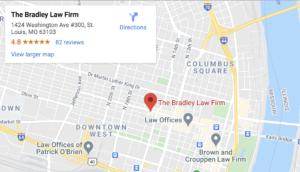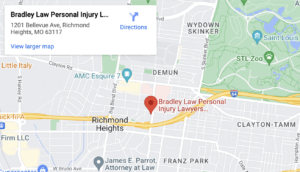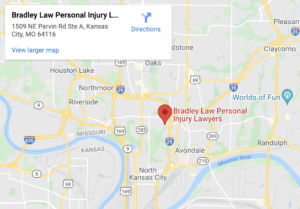
Most personal injury cases are based on negligence claims. However, some cases might be proven and won based on the legal theory of res ipsa loquitor. Res ipsa loquitor is an important legal theory that helps prove some personal injury cases that might not be won on a standard negligence claim.
Table of Contents
Proving Liability for a Personal Injury Claim in Missouri
Generally, proving liability for a personal injury claim requires that you have evidence proving the legal elements of negligence. Negligence is failing to use the same care that a reasonable person would have used given the same situation or circumstances.
Proving negligence requires you to have evidence establishing:
- Duty of Care – The person you accuse of causing your injury owed you a legal duty of care.
- Breach of Duty – The person accused of causing your injury breached their duty of care through their actions or omissions.
- Causation – The breach of duty was the proximate and direct cause of your injury.
- Damages – You sustained damages because of the person’s actions or omissions.
The evidence must prove each of the above elements by a preponderance of the evidence. In other words, the jurors must believe there is a greater than 50% chance that the person caused your injury than not.
The evidence must create a direct causal link between the person’s conduct and the cause of your injuries. You lose your case if you cannot establish this link with sufficient evidence.
However, some cases might not have sufficient direct evidence to prove a causal effect because of the circumstances of the accident. In those cases, res ipsa loquitor can help you win your personal injury case.
What Is Res Ipsa Loquitor?
Res ipsa loquitor is a Latin term that means “the thing speaks for itself.” In personal injury claims, res ipsa loquitor allows an injured party to meet the burden of proof with circumstantial evidence.
Generally, circumstantial evidence is not as strong as direct evidence because it does not prove a fact. However, circumstantial evidence allows a person to draw reasonable conclusions because the evidence provides a logical implication that a fact exists.
How Do You Prove Res Ipsa Loquitor Negligence Claims?
Establishing res ipsa loquitor negligence requires the injured party to prove the following:
- The accident or incident in dispute would not generally happen unless someone acted negligently;
- The alleged negligent actions are within the duty of care owed by the defendant (alleged at-fault party) to the plaintiff (injured party);
- The defendant had sole control of the instruments or circumstances that caused the accident or incident;
- The evidence shows that no one else but the defendant caused the plaintiff’s injuries; and,
- The plaintiff did not contribute in any way to the cause of their injury.
Res ipsa loquitor creates a rebuttal presumption of negligence by the defendant. It is a high standard for the plaintiff to prove because they ask the jurors to infer negligence from evidence that does not prove specific facts.
Res ipsa loquitor can be used in all types of personal injury cases where direct evidence might not be available, including premises liability claims, medical malpractice cases, and product liability claims. It can also be used in cases involving automobile accidents, slips and falls, and construction accidents.
What Damages Can I Recover for a Negligence Claim Based on Res Ipsa Loquitor?
If you win your case, you are entitled to the same types of damages you could receive for a general negligence claim. Most personal injury victims are entitled to compensation for their economic damages, including:
- Medical bills
- Personal care costs
- Out-of-pocket expenses
- Lost wages
- Nursing care
- Rehabilitation therapies
- Loss of future earning capacity
Additionally, the injured party can recover money for their pain and suffering or non-economic damages. These damages include emotional distress, decreased quality of life, and permanent impairments.
Rebutting Negligence Claims Based on Res Ipsa Loquitor
Once you present your circumstantial evidence for a res ipsa loquitor negligence claim, the defendant can present evidence refuting your claim. The defendant might present evidence suggesting that you were partially to blame for the cause of your injury or that another person could be responsible. The defense might use evidence to show that the defendant was not in control of the circumstances that led to your injury.
If the defense’s arguments and evidence are strong enough, the jurors might find that you did not meet the burden of proof for res ipsa loquitor negligence. In that case, the defendant would not be liable for your damages.
Contact Our Law Firm for a Free Consultation With a Kansas City Personal Injury Lawyer
Res ipsa loquitor cases are complex personal injury claims. However, our legal team has extensive experience handling all types of injury cases. Contact us for a free consultation with one of our Kansas City personal injury attorneys to discuss your case. Call (314) 400-0000 to contact an attorney at Bradley Law Personal Injury Lawyers.




